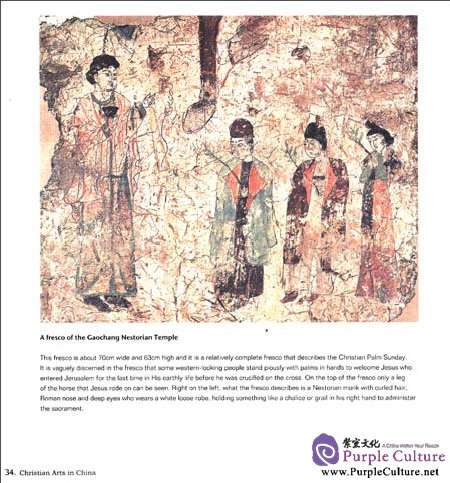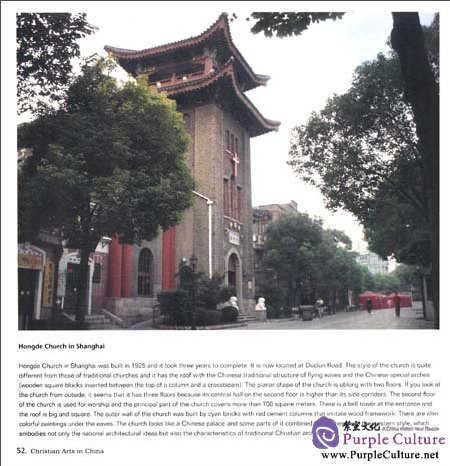Sample Pages Preview


As Nestorian Christianity gradually faded away in Chinese history, the message of Christianity lost contact with people in this eastern country of China. However,history arranged them to meet again in the way that the Chinese are reluctant to accept.
The Opium War that broke out in 1840 forced China to open its door to the world and many coastal cities became commercial ports. A very common phenomenon then was that there was always a concession in all commercial ports which western colonial countries ruled by the law that was different from China's. The western missionaries who entered China at that time often established their headquarters and built their churches in the concessions with the extraterritoriality. The concession then functioned as a base for further mission into Inland China. For a while, the church architectures in the concessions appeared with the same Victorian colonial features or earlier Romanesque and Gothic styles as the civil buildings.
In 1866, the Anglican Church in Shanghai built the Holy Trinity Church designed by the famous British architect Sir George Gilbert Scott (1811-1878). The church was built with red bricks and in the shape of a Latin cross horizontally. There are porches outside. They mainly consist of the pointed arches and semicircular ones. There are single short columns inside the church,on top of which is the collar braced roof. It was the most common roof style of the British gothic churches in the 15th century. The Holy Trinity Church is typical of the gothic church revived.
A lot of distinctive churches were built at this period of time and one shouldn't forget Jiangsu Road Church in Qingdao that was designed by the German architect Curt Rothkegel. It started to be built on April 19, 1908 and was completed and dedicated on October 23,1910. The former name of the Church was Qingdao Evangelical Church and it was a typical German castellan architecture which occupied 1,000 square meters. Its principal part was made up of two floors with the steep and slanting roof covered by red bricks; the window frames were formed bY red semicircular marble columns which showed its dignity; the foundation of the walls was heavy granite, which showed the fineness of the yellow wall in the roughness. The belfry was 39.10 meters high with variegated bronze plates on the top.The whole church had a clear framework with bright color in dignity against the blue sky of East Sea coast,which took on the special beauty of religion.

